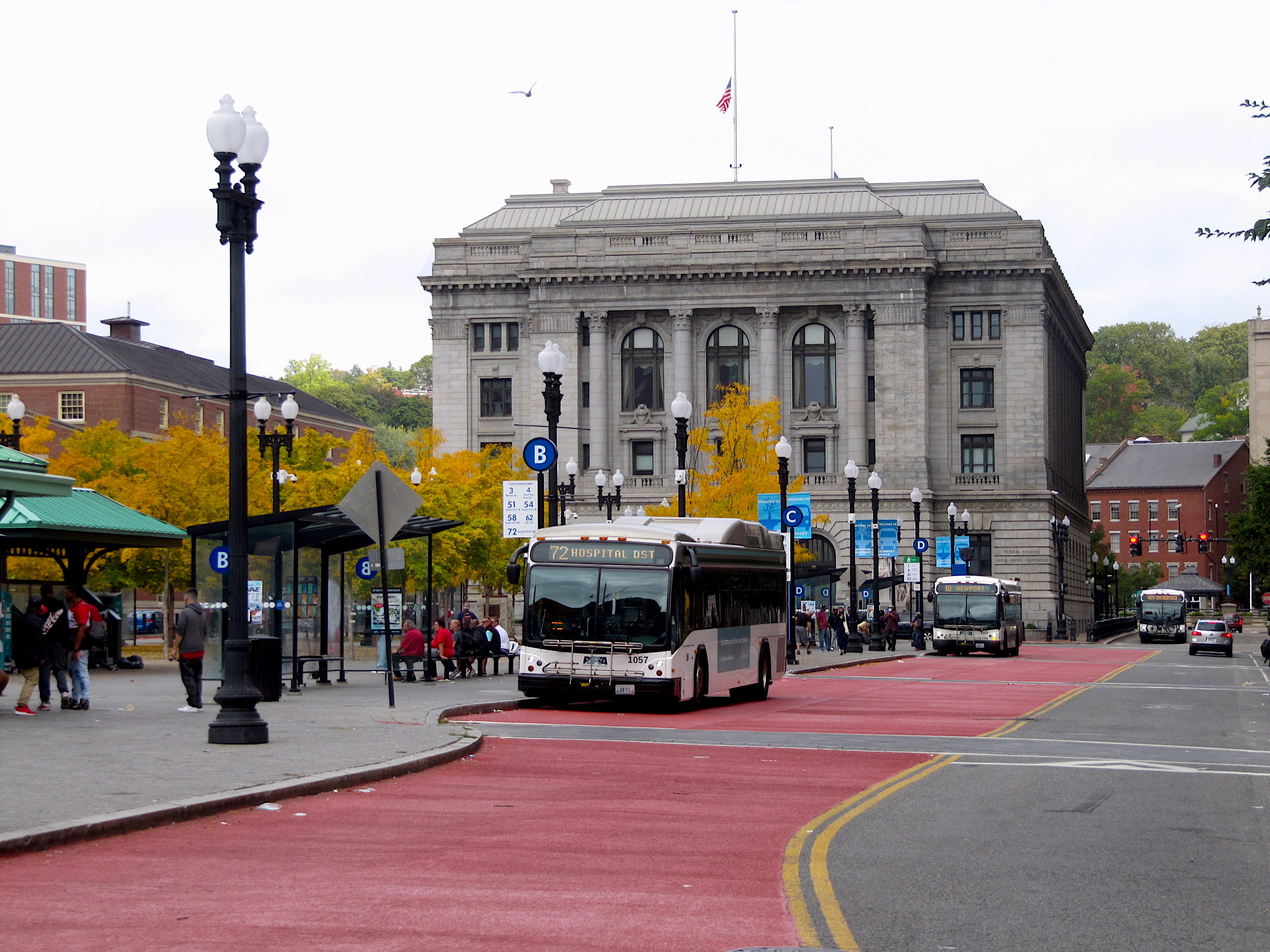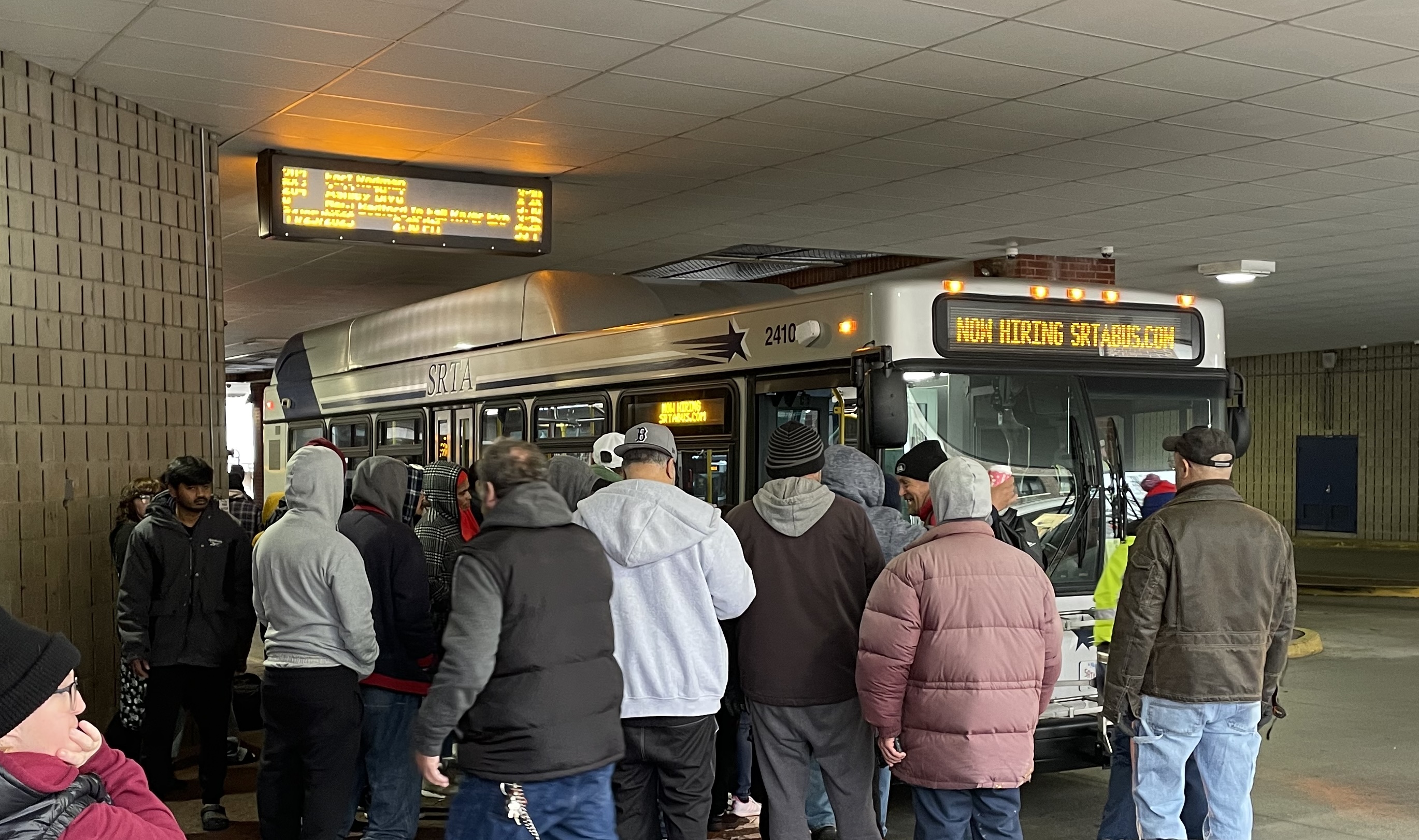Transit and environmental justice advocates in Rhode Island have filed a formal Civil Rights Act complaint against the Rhode Island Department of Transportation for its plans to dismantle the state's biggest transit hub, Kennedy Plaza in downtown Providence.
In a complaint filed on Dr. Martin Luther King, Jr. Day, John Flaherty, Deputy Director of Grow Smart Rhode Island, and Dwayne Keys, President of the South Providence Neighborhood Association, allege that the "deeply flawed and harmful plan by the Rhode Island Department of Transportation (RIDOT) to dismantle and virtually eliminate the central bus hub in downtown Providence" would violate the Civil Rights Act because people of color make up the majority of transit riders in Rhode Island, and Kennedy Plaza, with over 15,000 boardings on a typical weekday, is Rhode Island's busiest transit hub.
Details about the state's plans are extremely vague, but according to some of the few public documents that have been released, the main bus transfer hub in Kennedy Plaza would be relocated and shrunk, and RIDOT would build two new mini-hubs, each roughly a quarter-mile away from Kennedy Plaza.
The changes would likely necessitate major adjustments to RIPTA’s bus routes, two-thirds of which currently stop in Kennedy Plaza.
Related:
Why Is Rhode Island Trying to Break Up Its Biggest Transit Hub?
Dwayne Keys, who, the President of the South Providence Neighborhood Association and one of the complaint's two signatories, says that Governor Raimondo's administration "wants to make Kennedy Plaza a kind of tourist attraction - not something for the people. How does this (plan) improve transit? Are we going to see faster commutes? Lower fares? How will this benefit people who use RIPTA on a daily basis? Nobody's answered these questions."
"I think with the racial reckoning of 2020, we need to go here and take these actions," Keys continued. "This is why these (civil rights) laws are here, to stop these harmful actions, whether they’re intentional or unintentional."
The complaint against RIDOT observes that "a majority of RIPTA riders (53 percent) identify as black, indigenous and people of color, even though they represent just 14 percent of the state’s overall population," and that "the RIDOT plan to dismantle the central bus hub in Kennedy Plaza... will impose additional and unnecessary transfers, longer commute times and system confusion for thousands of riders."
"In addition, many more passengers would be required to wait for buses without cover from the elements or access to an indoor terminal with public bathrooms," the complaint continues. "It is easy to understand why there has been an underlying perception that the true purpose of the RIDOT Multi-Hub plan is not to improve transit, but rather to remove buses and riders (largely BIPOC and low income) from Kennedy Plaza."
Title VI of the Civil Rights Act of 1964 declares that "no person in the United States shall, on the ground of race, color, or national origin, be excluded from participation in, be denied the benefits of, or be subjected to discrimination under any program or activity receiving Federal financial assistance."
According to legal guidance from the Federal Transit Administration, changes in transit service must "prevent the denial, reduction, or delay in benefits related to programs and activities that benefit minority populations or low-income populations," and agencies must "promote the full and fair participation of all affected populations" in decision-making.
President Joe Biden has appointed Rhode Island Governor Gina Raimondo, one of the few public officials to endorse the state's Kennedy Plaza plans against vigorous local opposition, to be his Secretary of Commerce.
If confirmed, current Lieutenant Governor Dan McKee would take over Raimondo's office. To date, McKee has not expressed any public opinions on the Kennedy Plaza plan, and his office did not respond to two inquiries from StreetsblogMASS last week about his position on the project or the merits of the Title VI complaint.






